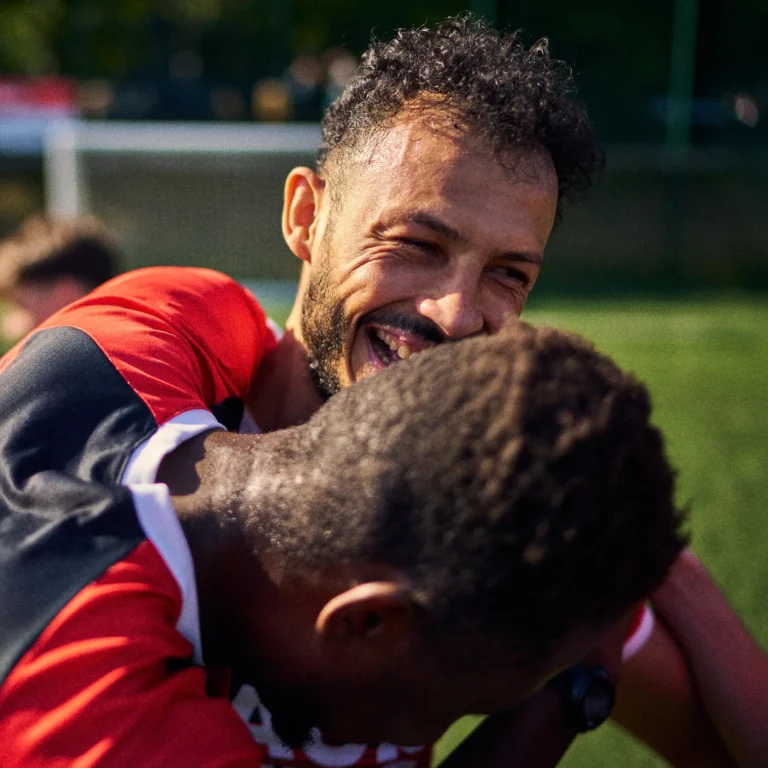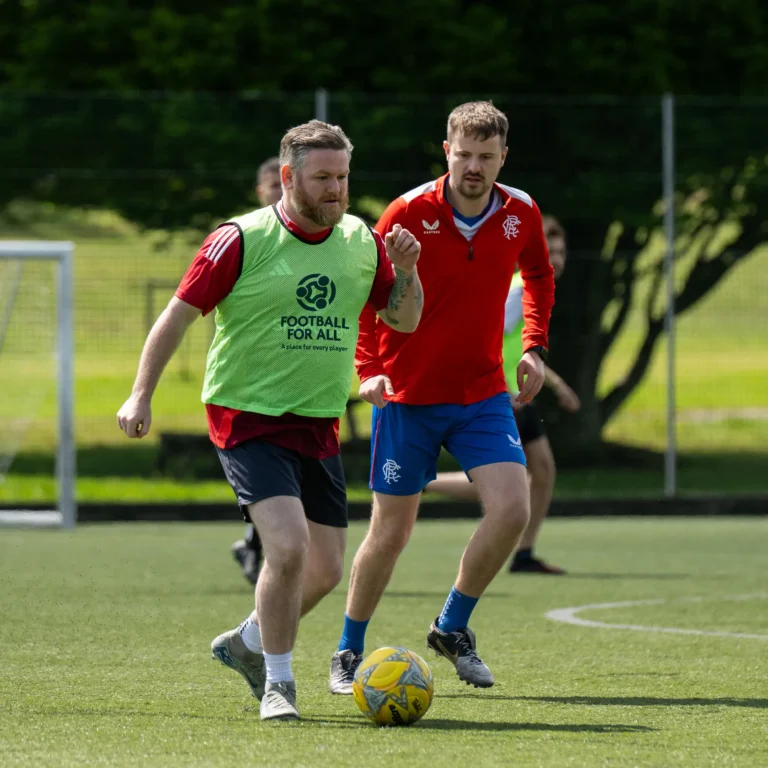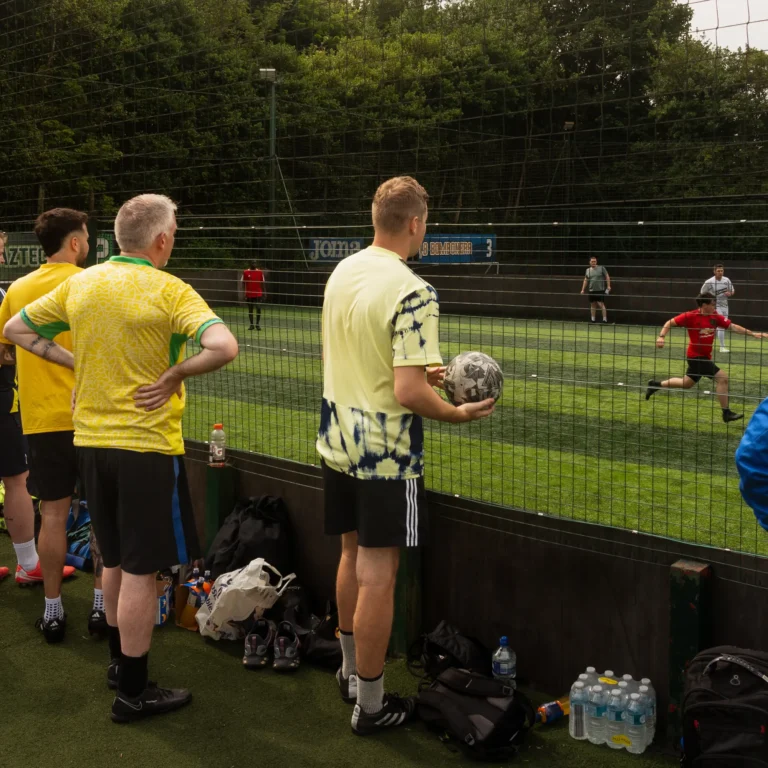Between April and May 2025, we launched 40 new football games across the UK. That’s 40 new weekly, accessible sessions now running in communities from Nottingham to Glasgow, South London to Manchester.
We are Football For All and we believe football should be available to everyone. No matter your age, gender, experience level, background, postcode or bank balance.
These 40 new games is the largest rollout we’ve ever done. We’re proud of the numbers but what matters more is what they mean and who they’re for.
How we organise inclusive football games?
Football For All is a local football non-profit initiative. The nationwide operations started in 2014. From day one our goal was simple. To create more inclusive, low-barrier football games for adults in local communities.
We don’t run tournaments. We don’t do trials. We simply organise weekly football sessions open to anyone aged 18+, run by local volunteers we call Game Hosts.
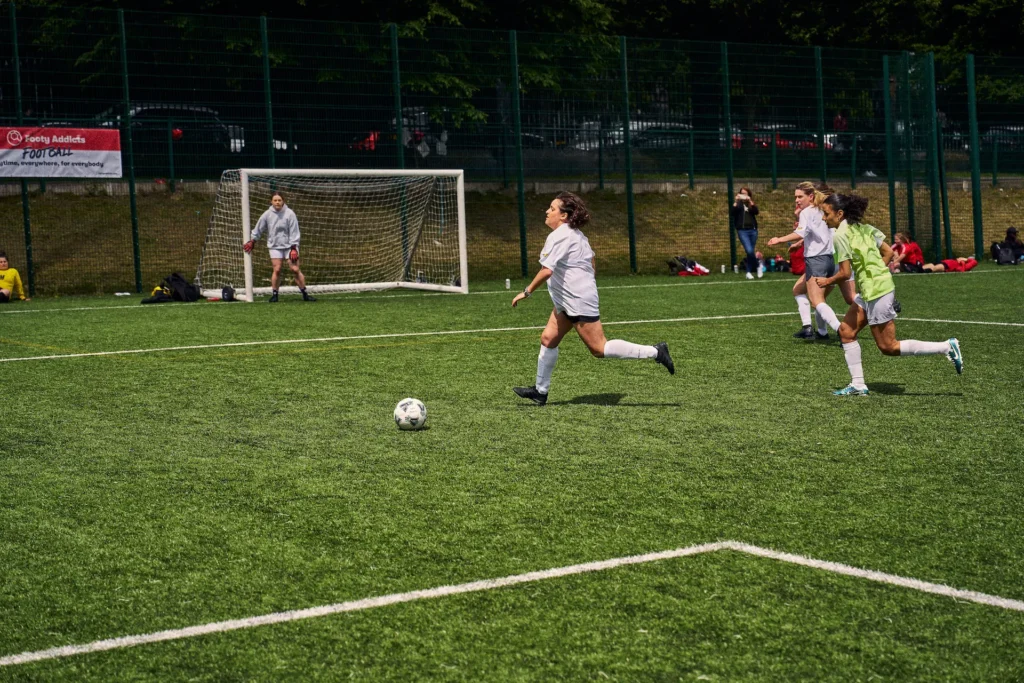
All our games are listed and managed via social football platform Footy Addicts, a platform that helps manage the community, payments and game coordination. Games are low-cost, typically £2 to £6 per player. Every penny is reinvested into pitch hire, equipment and community expansion.
We’re not a funded. We’re a self-sustaining, community-powered movement with one goal. To benefit local communities through accessible football games.
April–May 2025: Which local communities?
Over just eight weeks, we expanded into 15+ local authorities. Many in areas with limited grassroots provision, high social need and strong unmet demand. Here’s a snapshot of the new weekly football sessions:
📍 Nottingham
Two new games near city centre and student-heavy zones. Immediate uptake from local residents, international students and returning adult players.
📍 West Midlands
Eight games across Birmingham, Coventry, Solihull and surrounding boroughs. Conducted a deep operation analysis to reach diverse demographics and underserved areas.
📍 Liverpool
Three new games launched in the city and outer boroughs. Priority on working-age adults and men returning to sport for mental health and social reasons.
📍 Greater Manchester
Five new games in Salford Ardwick, Openshaw and Fallowfield. All now consistently full with strong local demand, particularly among adults aged 25–45.
📍 Glasgow & Edinburgh
Seven new games across both cities, including women-only sessions and mixed games with wide demographic reach. Partnership conversations underway with local venues and community leaders.
📍 London Boroughs
- North London: Barnet
- East London: Newham, Stratford
- SE London: Woolwich, New Cross, Crystal Palace
- South London: Upper Norwood
- NW London: Edgware
- West London: Ealing
Games cover weekday evenings and weekends. Some are general open play, others women-only or beginner-friendly. Every game is hosted, structured and consistent which is a key reason players keep returning.
📍 Warwickshire
Two new games in Leamington Spa and Warwick focused on local dads without existing sports club ties.
Who’s playing and why it matters
We exist to serve people who’ve been left out of traditional football pathways. Across all our sessions, we welcome:
- Adults who stopped playing due to time, cost or confidence
- New arrivals to the UK looking for connection
- Women, trans women and non-binary players looking for inclusive space
- People managing anxiety, stress and loneliness
- Players in low-income areas with no other regular sporting outlet
Some show up just to move again. Others to meet people. Some to reconnect with something they loved but lost along the way. Every reason is good and every player belongs.
The role of our volunteers
Every game is led by a volunteer Game Host, supported and equipped to manage the session. Hosts set the tone, ensure safety and fairness and often become community anchors.
In return, they play for free and work closely with our team. Many of our hosts started as players. Some now attend multiple games and offer useful advice to new volunteers.
This bottom-up model allows us to scale sustainably, with low overheads and high community ownership.
Why this model works
✅ Low-cost
We charge the minimum needed to cover costs, no profit, no overhead. This keeps the games sustainable without relying solely on grants or one-off funding.
✅ Low-pressure
No trials, no fixed teams, no politics. Just safe, social football where people can show up as they are.
✅ High engagement
Our player retention is strong. Most who attend once, return. Games are regularly full and word of mouth helps us grow.
✅ High social value
Players repeatedly report improved mental wellbeing, reduced isolation, better fitness and stronger local connections. Many describe our sessions as “the best part of their week.”
The Bigger Picture
At our core, we’re building the football community infrastructure the UK needs.
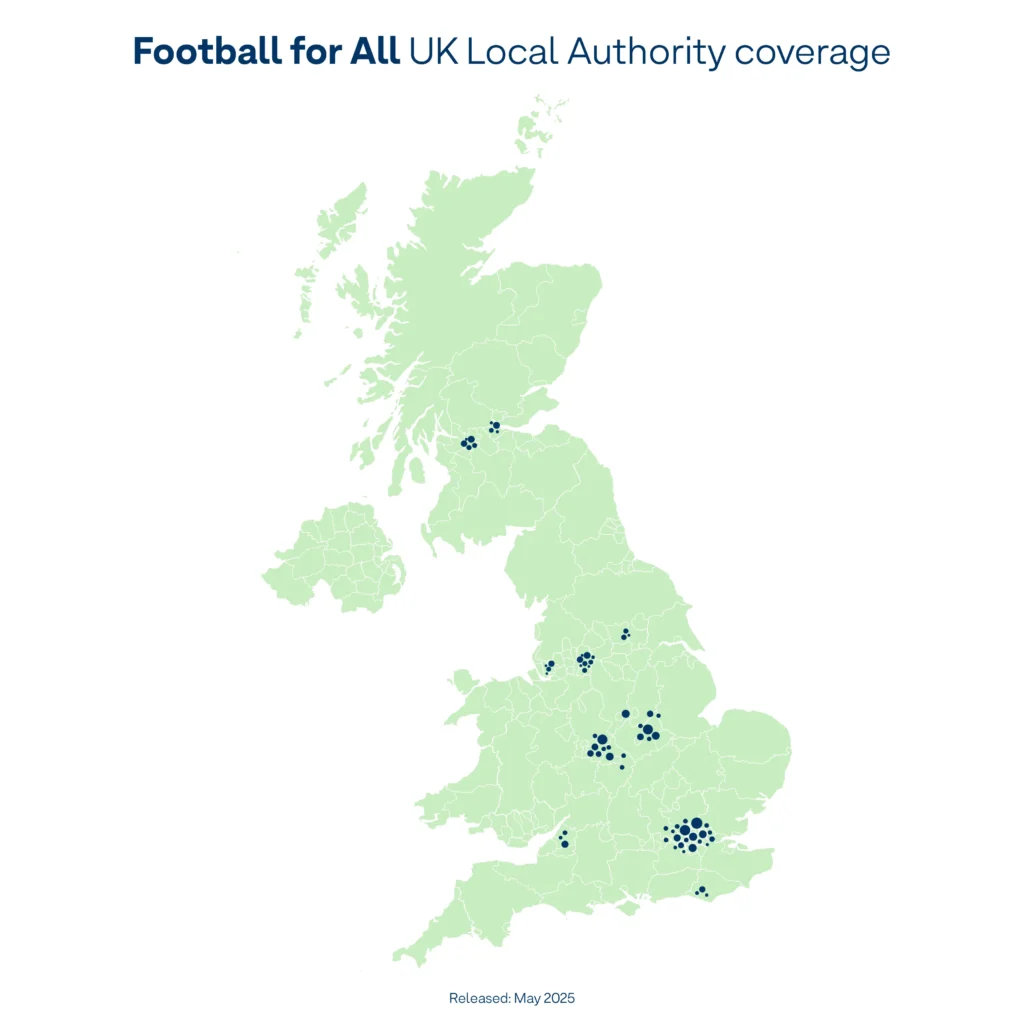
In many of the areas we launched this spring, football provision had become expensive, elitist or non-existent. Our games are now the only regular sessions that adults (especially women, migrants or working-class players) can attend consistently and affordably.
Across the UK, the demand is clear. The challenge is keeping up.
What We Need to Keep Growing
We’ve proven that this model works. But scaling requires support.
If you’re a funder, council partner, NGB or sports body, here’s where you can step in:
🔸 Pitch Access
We can’t grow without places to play. We’re looking for councils, venue operators and trusts willing to unlock pitch time at community rates.
🔸 Host Recruitment & Training
We’re developing a national football volunteer network. Support from sport bodies could help us train 600+ game hosts.
🔸 Targeted Investment
With even modest grants, we can launch new sessions in areas where demand is high but access is low, particularly for:
• Deprived boroughs and rural gaps
• Mental health-friendly sessions
• Women’s football
• Beginners and returning players
• Areas with high social mix
• Young adults aged 18–25
🔸 Research & Data Partnerships
We’re open to collaborating on impact tracking such as mental health outcomes, physical activity levels and inclusion metrics to demonstrate real value at scale. Our current collaboration with the NHS show an average 80% improvement across 14 key wellbeing areas for participants in our football sessions.
Final Thoughts
We launched 40 games in 8 weeks. But this is just the beginning.
There are boroughs, towns and cities across the UK still waiting for something like this. People who would show up tomorrow if someone gave them the opportunity. People who don’t care about competition, they just want to feel connected, included and welcome.
That’s what Football For All exists to do.
If you’re a player, come and try a session.
If you’re a potential host, we’ll support you to start.
If you’re a funder or local authority, we’d love to work with you.
And if you believe football should be for everyone you’re already one of us.
Want to help bring Football For All to your area?
📩 Get in touch with us directly
🎯 Let’s build more games, in more places, for more people
